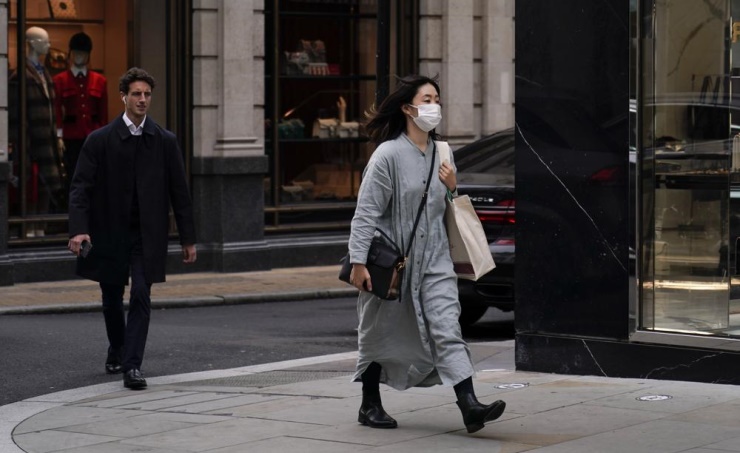London : Life has returned to normal for millions in Britain since coronavirus restrictions were lifted over the summer. But while the rules have vanished, the virus hasn’t, said AP.
Many scientists are now calling on the government to reimpose social restrictions and speed up booster vaccinations as coronavirus infection rates, already Europe’s highest, rise still further.
The U.K. recorded 43,738 new COVID-19 cases on Tuesday, slightly down from the 49,156 reported Monday, which was the largest number since mid-July. New infections have averaged more than 44,000 a day over the past week, a 16% increase on the week before.
Last week, the Office for National Statistics estimated that one in 60 people in England had the virus, one of the highest levels seen in Britain during the pandemic.
In July, Prime Minister Boris Johnson’s government lifted all the legal restrictions that had been imposed more than a year earlier to slow the spread of the virus, including face coverings indoors and social distancing rules.
Some modelers feared a big spike in cases after the opening-up. That didn’t occur, but infections remained high, and recently have begun to increase — especially among children, who largely remain unvaccinated.
Also rising are hospitalizations and deaths, which have averaged 130 a day over the past week, with 223 reported Tuesday alone. That is far lower than when cases were last this high, before much of the population was vaccinated, but still too high, critics of the government say. Britain has recorded more than 138,000 coronavirus deaths, the highest total in Europe after Russia.
Against that backdrop, some feel Britons have been too quick to return to pre-pandemic behavior. Masks and social distancing have all but vanished in most settings in England, including schools, though Scotland and other parts of the U.K. remain a bit more strict.
Even in shops, where masks are recommended, and on the London transit network, where they are mandatory, adherence is patchy.
A plan to require proof of vaccination to attend nightclubs, concerts and other mass events in England was dropped by the Conservative government amid opposition from lawmakers, though Scotland introduced a vaccine pass program this month.
Some scientists say a bigger factor is waning immunity. Britain’s vaccination program got off to a quick start, with shots given to the elderly and vulnerable beginning in December 2020, and so far almost 80% of eligible people have received two doses.
The early start means millions of people have been vaccinated for more than six months, and studies have suggested vaccines’ protection gradually wanes over time.
Millions of people in Britain are being offered booster shots, but critics say the program is moving too slowly, at about 180,000 doses a day. More than half of the people eligible for a booster dose haven’t yet received one.


